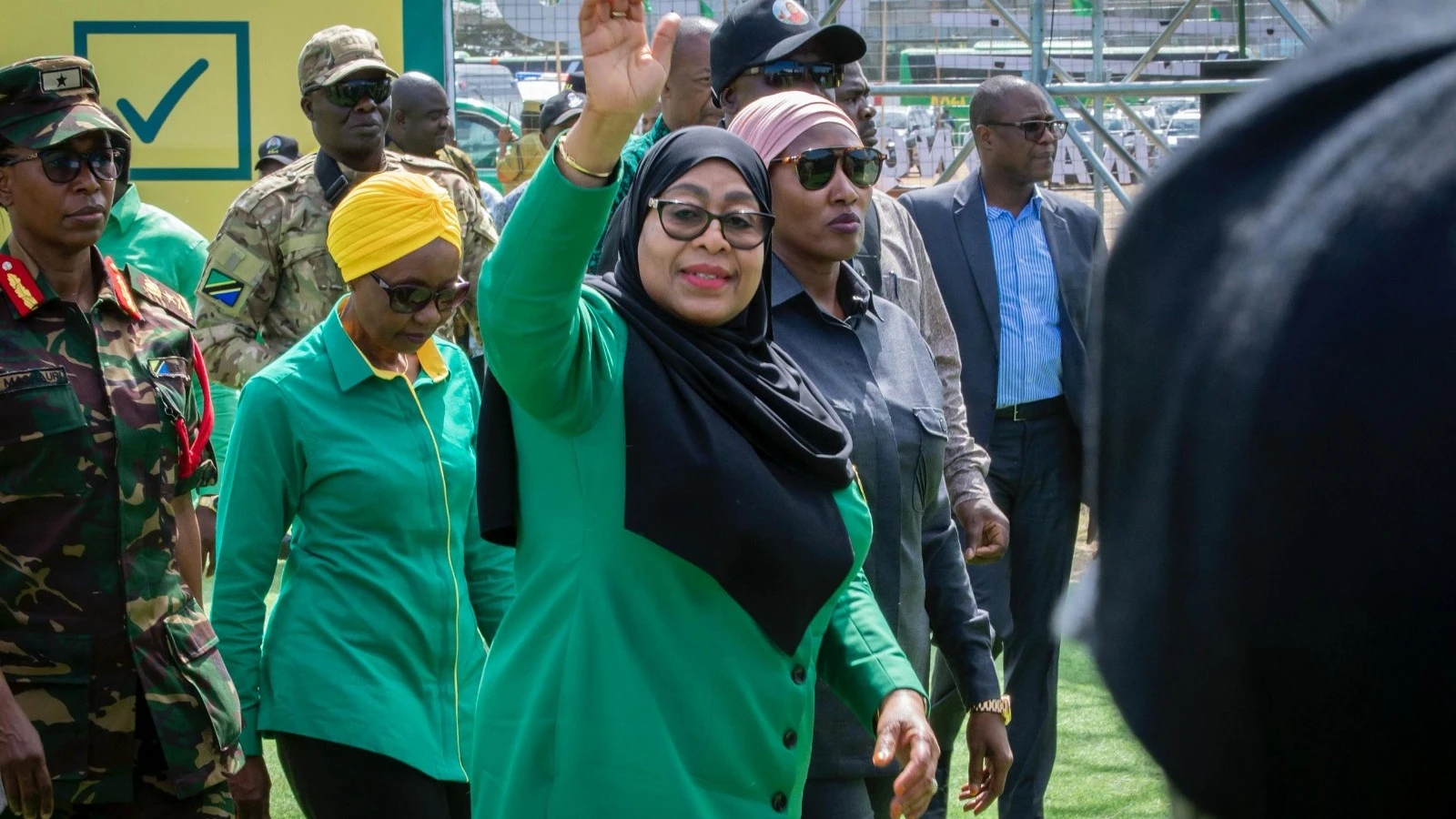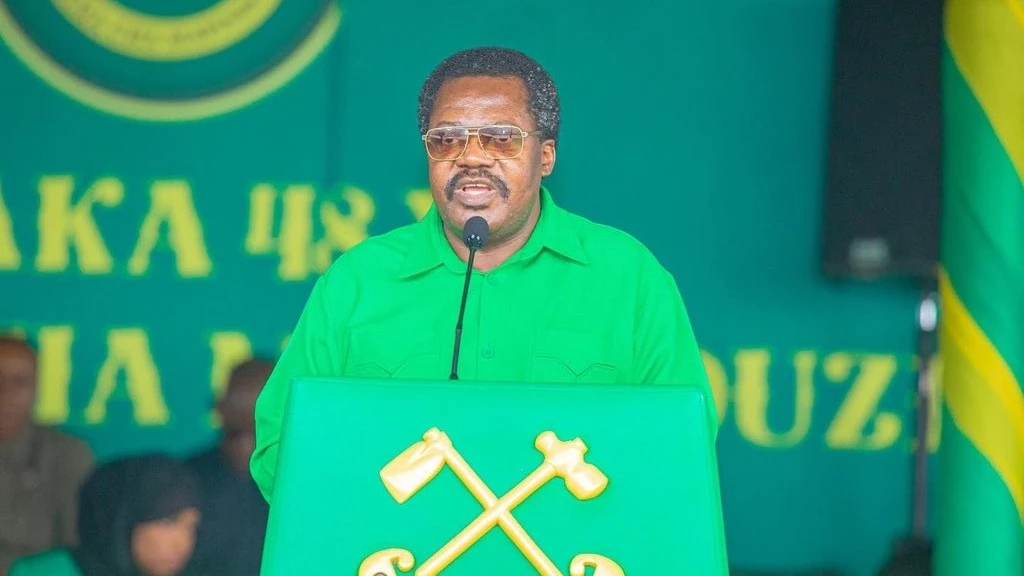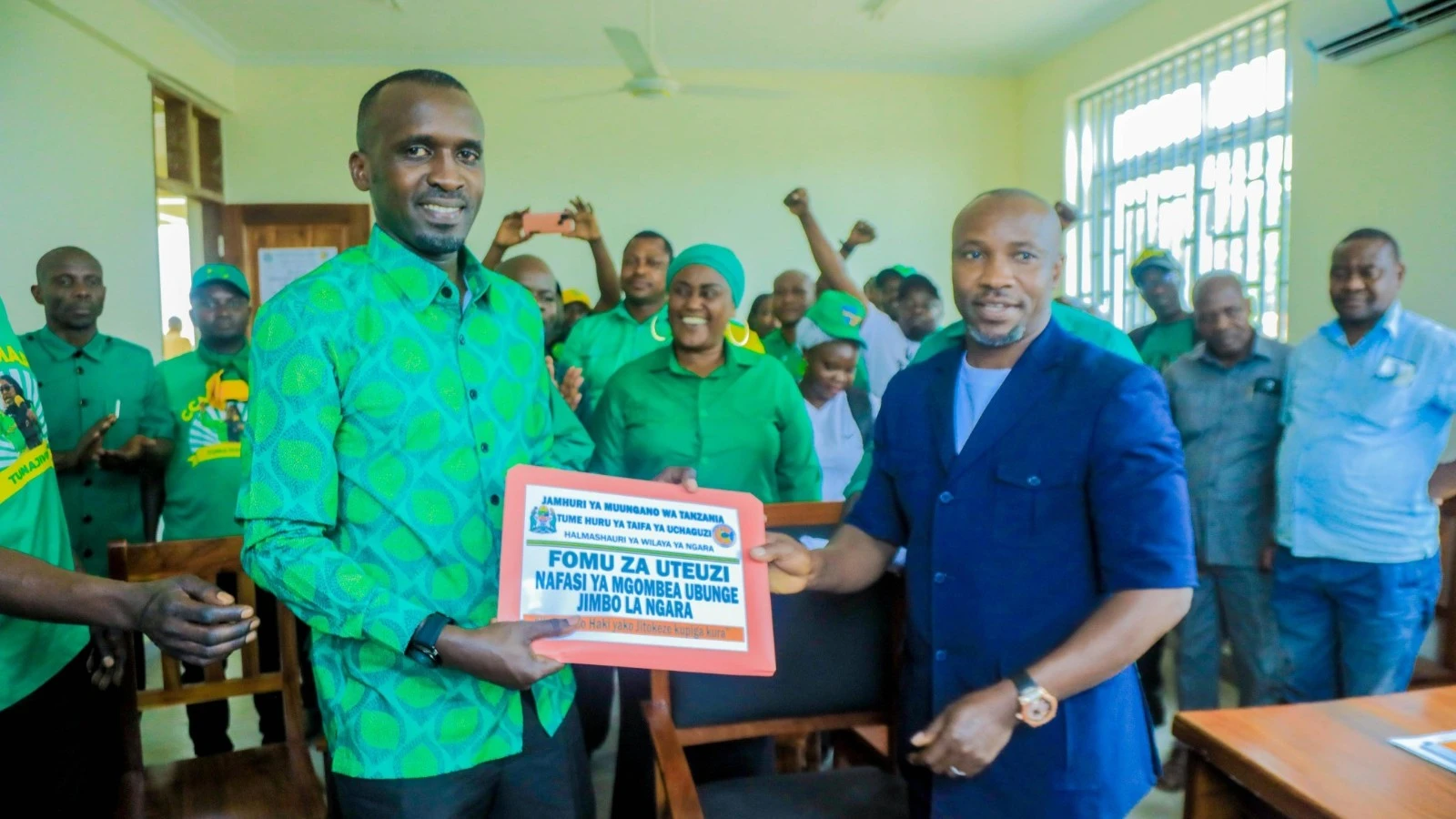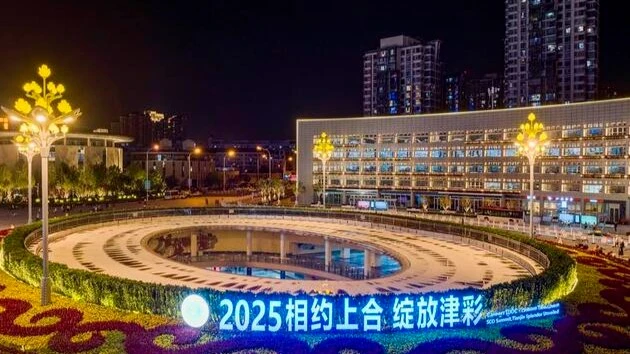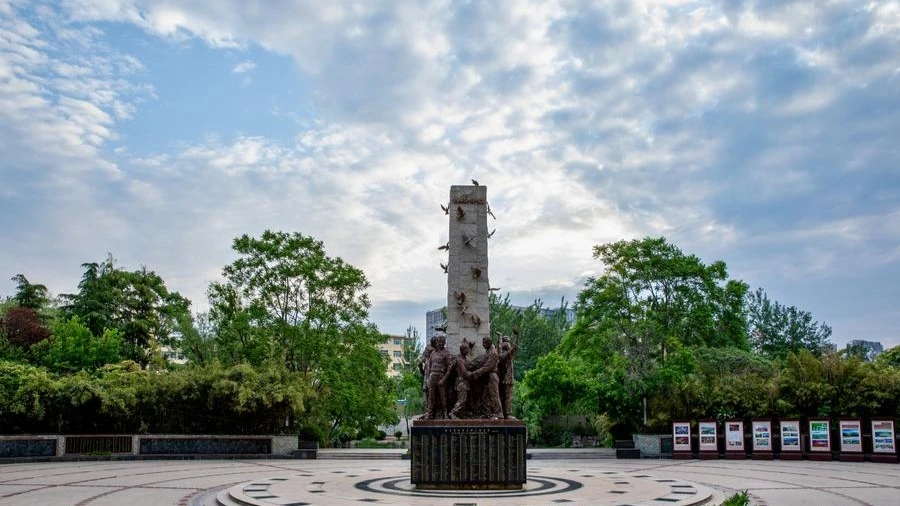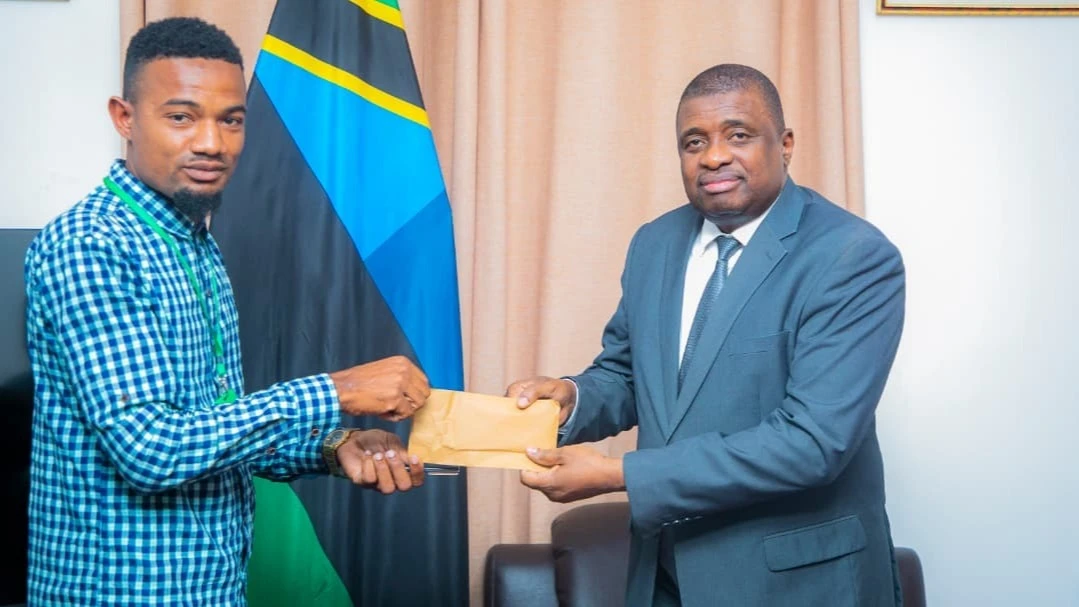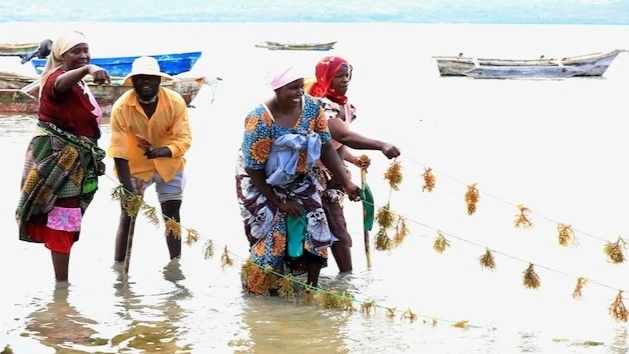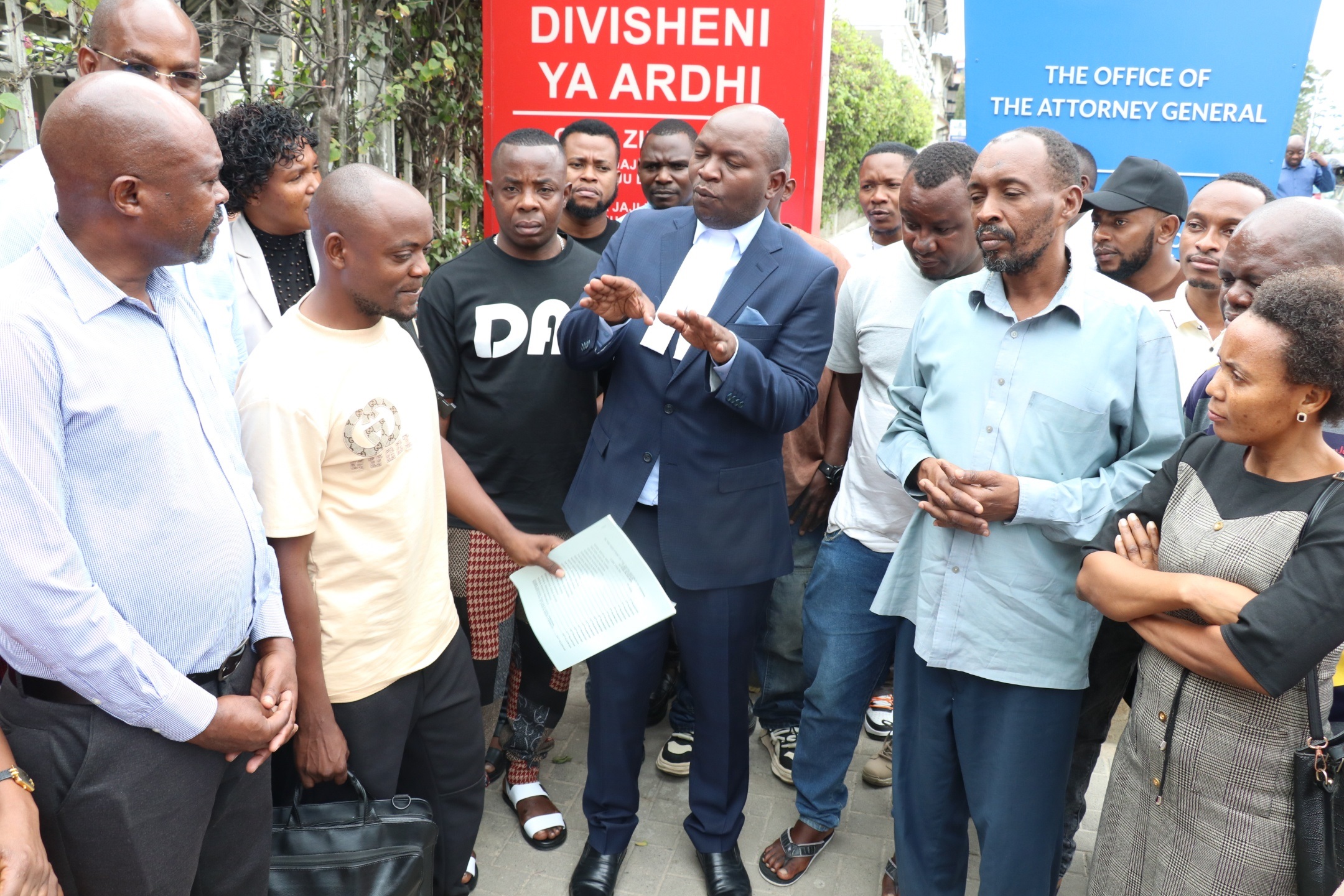Legacy of WWII concentration camp honours friendship, peace
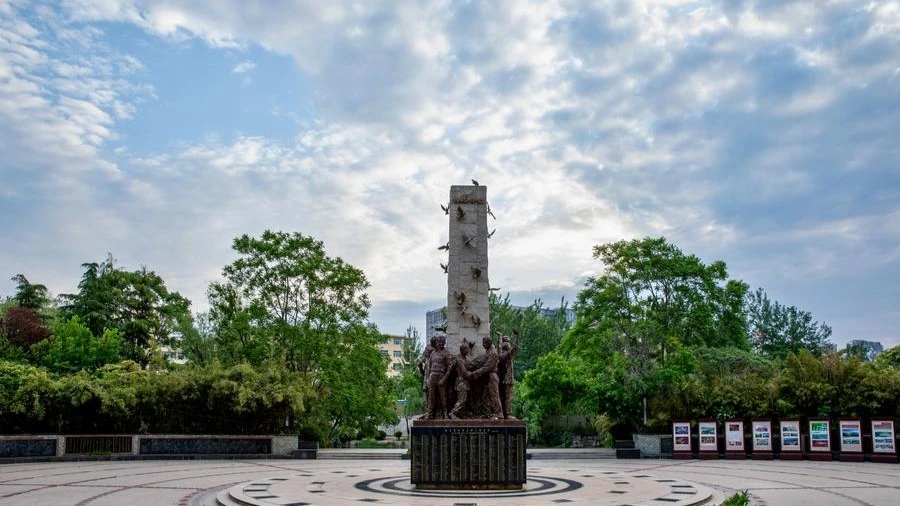
Eighty years ago, Charlie Stanley was just three years old when he and his parents were imprisoned in a concentration camp in Weifang City, east China's Shandong Province, during World War II (WWII).
"Because I was so young, I don't have many personal memories of the camp. But I have heard stories and read books about those experiences," recalled the 83-year-old American, who recently returned to Weifang for an exchange event on WWII concentration camps in Asia.
Weifang, once known as Weixian or Weihsien, was home to the "Courtyard of the Happy Way," a compound built by Americans in 1882. For decades, it functioned as a church, hospital and school.
However, from March 1942 to August 1945, the compound was converted by the Japanese invaders into the Weihsien concentration camp. The camp was used to detain over 2,000 expatriates, including over 300 children, from the United States, Britain, Canada and other countries.
"At that time, heat and clothing were scarce and nobody ever got enough to eat," Stanley said. Fortunately, some local Chinese found ways to deliver food to the internees, and his father was able to get eggs to feed him.
Historical records show that many Chinese risked their lives to break through Japanese blockades, delivering messages and providing food and medical supplies to the internees. Tragically, some even lost their lives in these efforts.
On Aug. 17, 1945, two days after Japan's surrender, the camp was liberated by a rescue team parachuted in by American forces in China.
In 2021, Weifang was designated an "International City of Peace." The former camp has been transformed into a museum to commemorate peace and friendship.
Seven historic buildings now form the main part of the museum, housing personal belongings once used by the internees, such as kerosene lamps, water bottles and clocks.
At the monument bearing the names of those who were detained, Stanley located his own name as well as those of his parents and other relatives. "As long as these names remain, our story endures," he said.
The history has left a lasting impact on Stanley's family: his son developed a deep interest in modern Chinese history, while his brother was once a history professor at the University of Hong Kong.
"My family is an example of the very strong and long-lasting friendly connections that have developed between China and foreign countries," he said.
During the event, Stanley met Han Chongbin, an 80-year-old whose father once aided expatriates at the Weihsien concentration camp.
"At that time, out of pity for the internees, my father spent his own money to buy candy and brought eggs from home, managing to send them into the concentration camp. In return, the internees dismantled an iron bed and sent it out," Han said. "He never expected that his help would be 'rewarded.'"
In 2019, Han donated the iron bed to the museum. Now a museum volunteer, he shares stories about that period of history with visitors.
With the help of translators, he and Stanley shared a heartfelt conversation, holding hands like old friends. "Peace is our common aspiration," Stanley said.
"Remembering suffering is not perpetuating hatred; it is igniting the beacon of hope for the future," said Ayo Ayoola-Amale, vice chair of the governing council of International Cities of Peace.
"Weifang's commitment to preserving this legacy -- establishing the camp's memorial museum, inviting descendants of survivors to return, and educating younger generations with truth -- epitomizes the deepest practice of peace. Such courage deserves global recognition," she said.
Top Headlines
© 2025 IPPMEDIA.COM. ALL RIGHTS RESERVED









